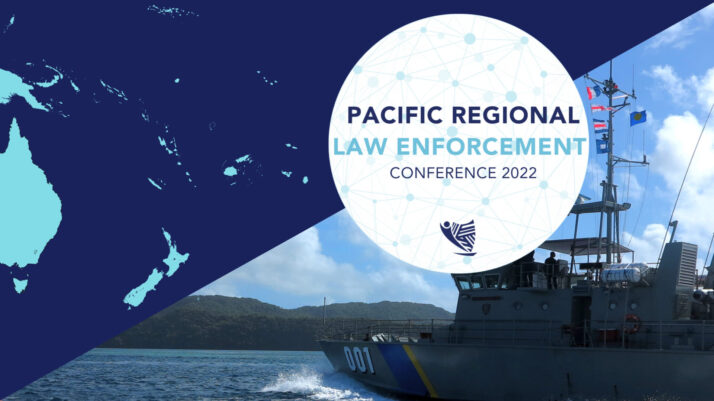PSC Newsletter June 2022
Education
Our Education team has carried on the fast pace set at the beginning of the year.
In the last quarter, the PSC has delivered two of our signature Anchoring Strategic Analysis courses facilitated by our technical expert Russ Swinnerton. The Strategic Analysis course strengthens participants’ skills in grappling with the perennial problems of analysis: the complexity of strategic developments, incomplete and ambiguous information, and cognitive biases.
The College developed this course in response to requests from Pacific security leaders for analytic skills to deal with complex and enduring security challenges. Sessions include presentations, group analytical exercises and writing tasks, to enable these skills to translate to the everyday work of our participants. From the 2nd to the 6th of May, we delivered a tailored version of the course to staff of the Pacific Fusion Centre, which was well-received by all participants.
We offered a more general round of the course from the 23rd to the 27th of May, providing training to security officials from countries including PNG, Palau and the Cook Islands. Case studies discussed in both courses included the impact of COVID-19 on the region and maritime security. We look forward to delivering further editions of this course in the second half of the year.
Securing our Blue Pacific—a course for policymakers.
The Pacific Security College has broken new ground, piloting its flagship course for policymakers working in national security organisations around the Pacific.
The pilot of Securing our Blue Pacific—a course for policy-makers was run over a week in early April. Eight countries participated: Tonga, Solomon Islands, Cook Islands, Fiji, Kiribati, Nauru, RMI and Vanuatu. Each country nominated two people, with the happy outcome that slightly more women than men attended.
Feedback from the course has been overwhelmingly positive, both during the course and in a call back session run a month later.
“The course was eye-opening for me. It exposed me to national security issues at a regional level. It provided practical tools I can use in my work. I was really impressed by our ability to work together and to learn from each other’s countries. I have a lot to learn. I really hope we can stay connected. It was really very good. Ideally, we would have more time and be co-located. The resource materials were very useful.”
“I did enjoy the course. By way of feedback, the course has really helped in understanding the security issues in the region and the vitality of the formation of policies and cabinet submissions around these. Very grateful. The most obvious setback for me was participating virtually. Some of us had troubles with connectivity and time clashes. Nonetheless, I feel very fortunate to have participated, and do look forward to participating in more courses from the College in the future.“
“This course has been crucial for me. I lead the National Intelligence Unit and prepare a weekly note to the Police Commissioner who then briefs the President and Cabinet. This course has been really useful to my career. I’d never seen a cabinet submission before. I have learned a lot. I would like to continue our team work.”
“The course has shown me pathways to develop proposals. I’m new in the legal and policy area. I’ve learned a lot and have tools that will help in my career.”
“I really appreciated working on the cab sub template, although it is a bit different to ours. It has been a great experience. It would be good to re-establish connections with each other.”
“I didn’t realise there were all these security issues in the Pacific. The course has enlightened me to these issues. Through the cab sub process I have seen how to connect problems with outcomes. I appreciate that we have to tell a story for Cabinet.”
“We are working on our NSS. Our Deputy Police Commissioner asked me to attend this course. I was reluctant. But I have learned a lot, including the worldwide need for coordination on security issues. I have learned skills on how to provide evidence in support of policies /equipment to make us more effective. And I can see that we need a team to work on NSS—we need to work with others.”
“I learned a lot from the professional experience of our facilitators. I’ve learned the importance of distinguishing roles (accountability), finding the links between problems and outcomes. And the technique of storytelling (to clarify thinking and make a persuasive case).”
“The course has been excellent, and the facilitation world class.”
The pilot has provided proof of concept and very positive lessons for future offerings—the first of which will be in Fiji where we will be pleased to be able to run the course face to face with colleagues.
As the Pacific begins to emerge from COVID-19, the College is excited to run more in-person courses in the region!
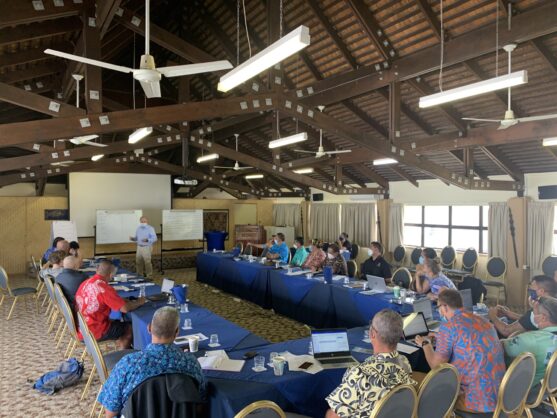
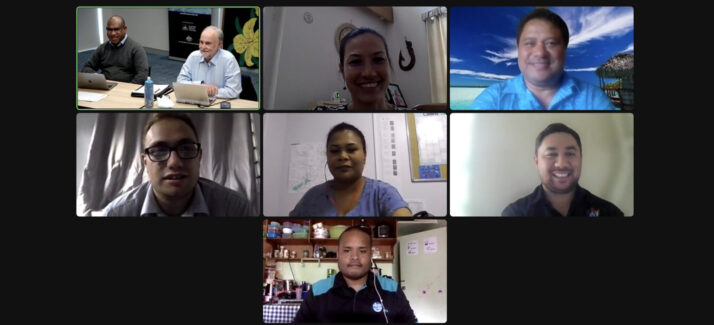
Engagements
Our team continues to actively engage with Pacific stakeholders. Last month, our Pacific Fellows, Dr Henry Ivarature and Jose Sousa-Santos hosted a roundtable discussion at PSC with a delegation from the United States Indo-Pacific Command discussing the needs for regional collaboration on security issues. In Fiji, our Program Coordinator, Kalei Dugucanavanua paid courtesy visits to Fiji’s Ministry of Foreign Affairs and Revenue and Customs Service and participated in the PIF’s Subcommittee on Regional Security. PSC Pacific Fellow Henry Ivarature also recently attended the Indo Pacific Sea Power Conference 2022 and sat on a panel with Australian defence, navy, army, air force and government.
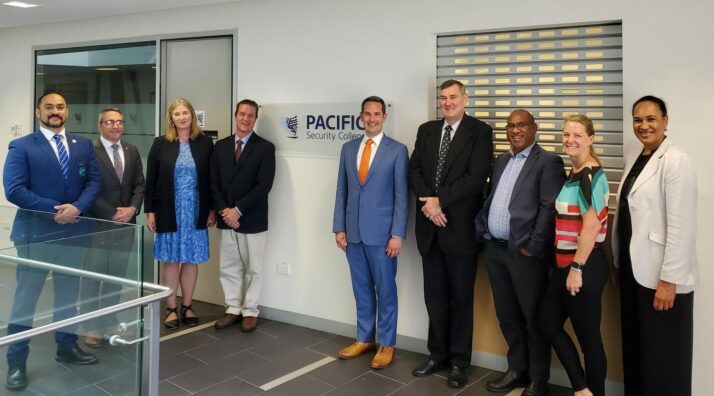
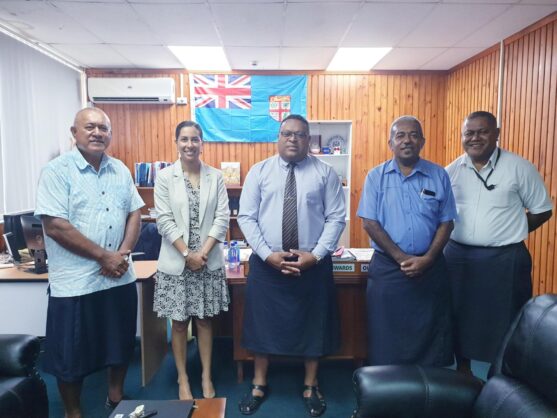
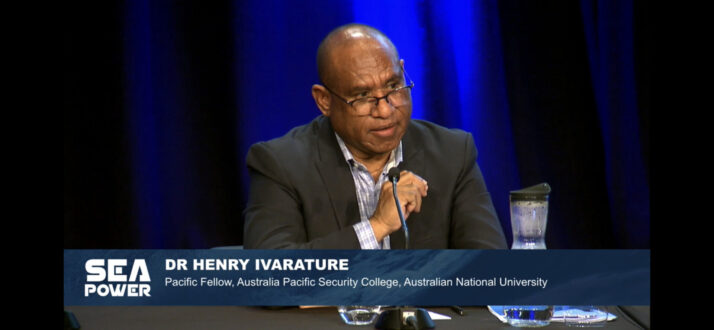
Pacific Regional Law Enforcement Conference 2022
The PSC, in partnership with the Pacific Islands Chiefs of Police, the Oceania Customs Organisation, and the Pacific Immigration Development Community, will be hosting the inaugural Pacific Regional Law Enforcement Conference. The conference will be held on 1-4 August 2022 in Denarau, Fiji. The theme of the conference is “Disrupting Crime in the Pacific”, to be underpinned by the core principle of “strengthening a network to beat a network.” The conference will be characterised by a practitioner-focused research-informed conversation. Participants in the conference will be drawn from Pacific law enforcement, academia, international law enforcement partners, Pacific regional organisations, and key stakeholder groups. The Conference is available for participation in person only by invitation. However, we will be opening virtual registration for the Conference before the end of June. We would love to have you join and contribute to this critical conversation.
